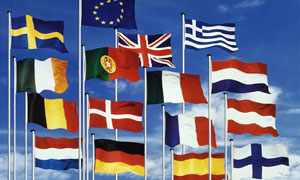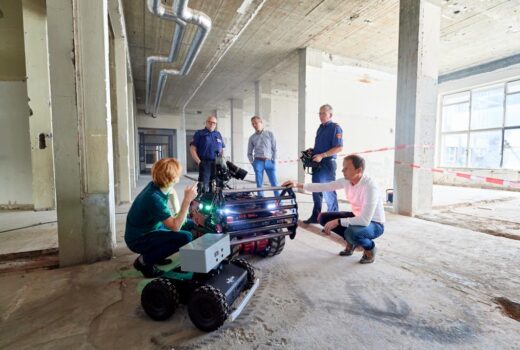€10.000 meer per jaar per student

Het
1. Educational performance has improved considerably in mostareas identified by European Education ministers ascentral for achieving the Lisbon goal. However, the 2010 benchmarksfor education and training set by the Council are not likely to beachieved, apart from the benchmark on increasing the number ofmath, science and technology graduates.
2. Young people stay longer in education. Expected time ineducation for young people is increasing in all countries. InFinland the average is now more than 20 years. The present economiccrisis could reinforce this trend.
3. The share of low achievers in reading literacy among pupilsin secondary education in the EU is increasing. From 2000 to 2006the proportion of low performers in reading literacy aged 15increased from 21.3% to 24.1%. This should be seen against abenchmark for 2010 which anticipates a significant reduction of20%.
4. Participation in lifelong learning is becoming a reality forthe majority of people in a number of European countries (DK, SE,IS, followed by FI, UK and NL) – and progress can be observed inalmost all countries (4-64 years olds).
5. Educational attainment levels of the adult population haveimproved considerably since 2000 – One out of four of the adultpopulation in the EU have high educational attainment, but this isfar behind the performance of both the US and Japan (40%). OnlyFinland and Norway have high education attainment rates above 35%.Moreover, the number of people with low educational attainment hasfallen by approximately 1.5 million per year since 2000.Nevertheless, it still accounts for 77 million adults or close to30 %.
6. While there has been an increase in investment per student inhigher education in almost all countries since 2000, the EU memberstates would need to invest on average over 10 000 euro more perstudent per year in higher education to reach the levels of the US(almost 200 billion euro more a year). The difference is mainly dueto very high levels of private investment in higher educationinstitutions in the US.
7. More than half a million EU students study abroad, anincrease of about 50% since 2000. Three out of four of these studyin another EU country.
8. Professional development is a feature of the lives of thevast majority of teachers. Nine out of ten teachers take part inprofessional development and more than half demands moreprofessional development than they received. The areas for whichteachers express greatest need for development are: “Teachingspecial learning needs students”, “ICT teaching skills” and”Student discipline and behaviour”. This should be seen in thecontext of an ageing teaching profession where one third of the 6million teachers in the EU are over 50. Women count for 70% of theteacher profession.
9. Early teaching of foreign language is advancing in Europe. Inlower secondary education, earlier teaching of English is becomingwidespread. Moreover, the number of foreign languages taught perpupil in upper secondary school education has progressed since 2000(from 1.2 to 1.6).
10. The three Nordic countries (SE, FI, DK), Germany, and the UKare the highest innovation performers as measured by the EuropeanInnovation Scoreboard. A strong concentration of the “creativeclass” with high educational attainment in and around capitalcities contributes to the performance. A process of convergence ofinnovation performance in the EU can be observed between the lowperformers (RO, LV, BG, TR) and the high performing countries.
Meest Gelezen
Vrouwen houden universiteit draaiende, maar krijgen daarvoor geen waardering
Wederom intimidatie van journalisten door universiteit, nu in Delft
Hbo-docent wil wel rolmodel zijn, maar niet eigen moreel kompas opdringen
‘Burgerschapsonderwijs moet ook verplicht worden in hbo en wo’
Raad van State: laat taaltoets nog niet gelden voor hbo-opleidingen



